US election 2016 results: Eight ways the election might have been different
- Published
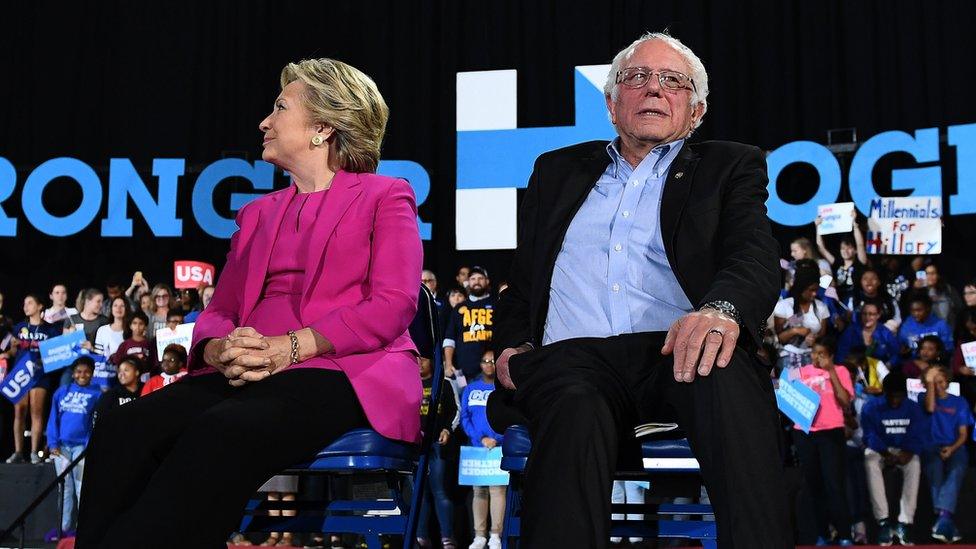
Bernie Sanders fans are not the only ones wondering what might have been - here are eight US election "what ifs" - some more hypothetical than others...
What if Sanders had won the Democratic nomination?
Supporters of the Vermont senator, who gave Hillary Clinton a run for her money in the primaries, could be forgiven for saying "I told you so" right now. And that is precisely what some of them have been doing.
"American voters demanded radical change and had the party elites been able to see this coming, we'd be talking about [a] Sanders victory. I have no doubt that we could've beaten Trump with Sanders," former Sanders national organizer Corbin Trent told The Daily Beast, external.
If Wikileaks had posted its revelations about Clinton earlier in the year, during the primaries, Sanders might have fared better.
It would have been a very different election campaign with Sanders as candidate. Trump would have found it more difficult to present himself as an anti-establishment outsider, when he was up against another maverick, albeit one that held elected office in Washington.
And Sanders' billionaire-bashing and opposition to further free trade deals might have played well in the rural white heartlands that turned out in such numbers for Trump.
But would he have had more success than Hillary Clinton in persuading black or Hispanic voters who backed Obama in 2012 to go to the polls?
In the primaries, Clinton won far more African American voters, external than Sanders - 75.9% to 23.1% - and his lead over Clinton among white voters was only 0.2%.
But Sanders was more popular than Trump, say his supporters - and while this was true during the primaries, according to RealClearPolitics polls, external, how would he have coped with Trump's taunts in the campaign proper?
Instead of "Crooked Hillary" we would have had "Red Bernie," the "European-style socialist" - he even spent his honeymoon in the Soviet Union,, external folks.
We will never know, of course. Unless he decides to run in 2020.

What if only men had voted?
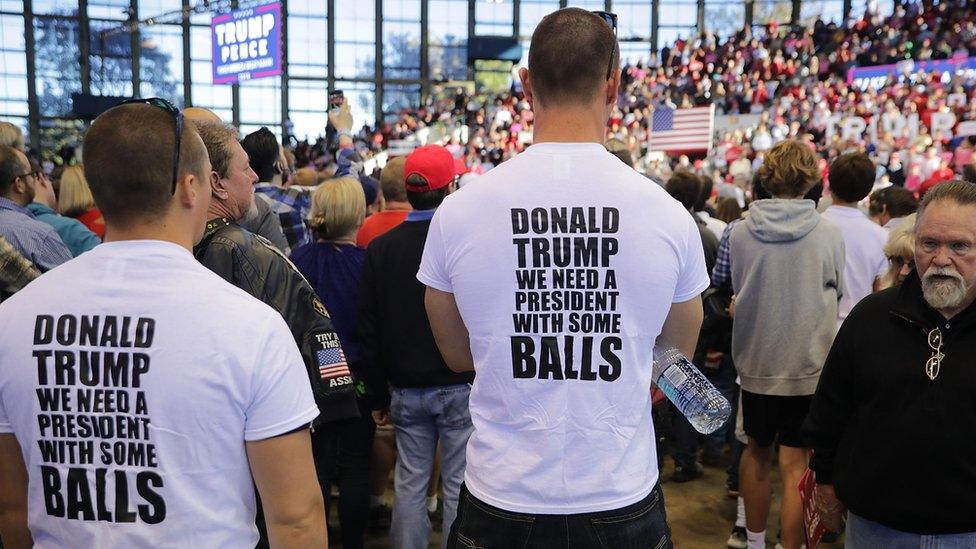
Much has been made of the gender divide at this election. And while it was big, with women backing Clinton over Trump by 54% to 42%, it was not much bigger than in 2012, according to Pew analysis of exit poll data, external. The simple fact is that more women tend to vote for the Democrats at US elections than men.
Donald Trump got 53% of male voters to Clinton's 41% - which is a big gap by historic standards, but not dramatically higher than in the 2000 election between George W Bush and Al Gore.
Trump would certainly have won by a landslide if only men had voted - but Clinton would have won if it was only women.

What if only the college-educated had voted?
We are deep into intellectual elite territory here - and the sort of snobbish, East Coast whining that will, no doubt, be silenced by the new man in the White House.
Yes, Trump scored big with the non-college educated voters. Bigger than any presidential candidate since exit polls began measuring this in 1980. And with a nine-point lead over Trump, it would have been plain sailing for Clinton if the Democrats had managed to introduce some sort of academic test at polling stations.
But not all college graduates backed Clinton. The majority of white women with degrees - a group she was banking on - voted for Trump, by a four-point margin, according to Pew.

What if the FBI had stayed silent about new emails?
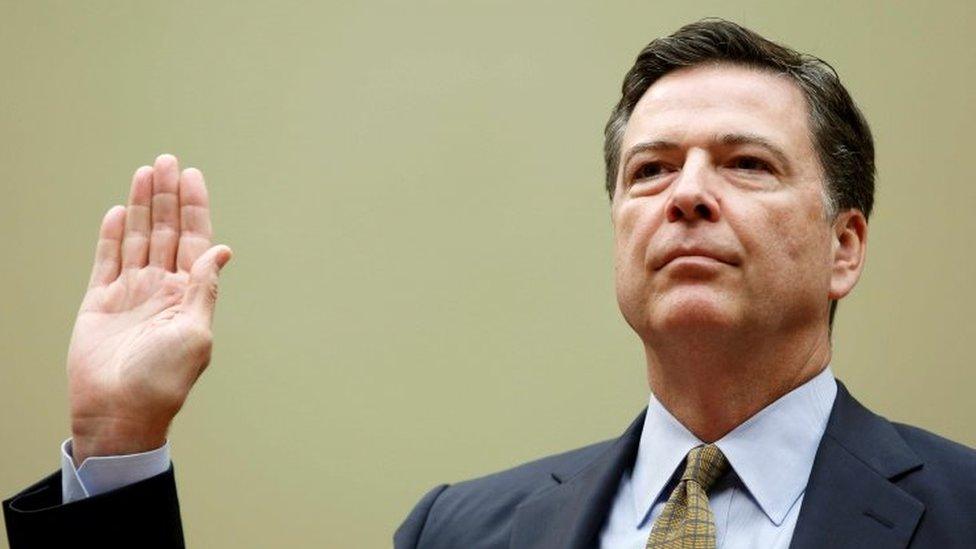
FBI director James Comey's surprise announcement, 11 days before the election, that the agency was again investigating emails linked to Clinton was seized by Donald Trump like a drowning man reaching for a lifebelt. And there is no question that the opinion polls tightened - but they generally do as polling day approaches and they were wrong anyway.
About 40 million Americans voted early, approaching half of those that took part in the election.
Comey cleared Clinton two days before election day. What harm, if any, had the week of speculation done? It's a question that will be keeping suddenly-unemployed Clinton aides awake at night.

What if Gary Johnson had kept out of it?
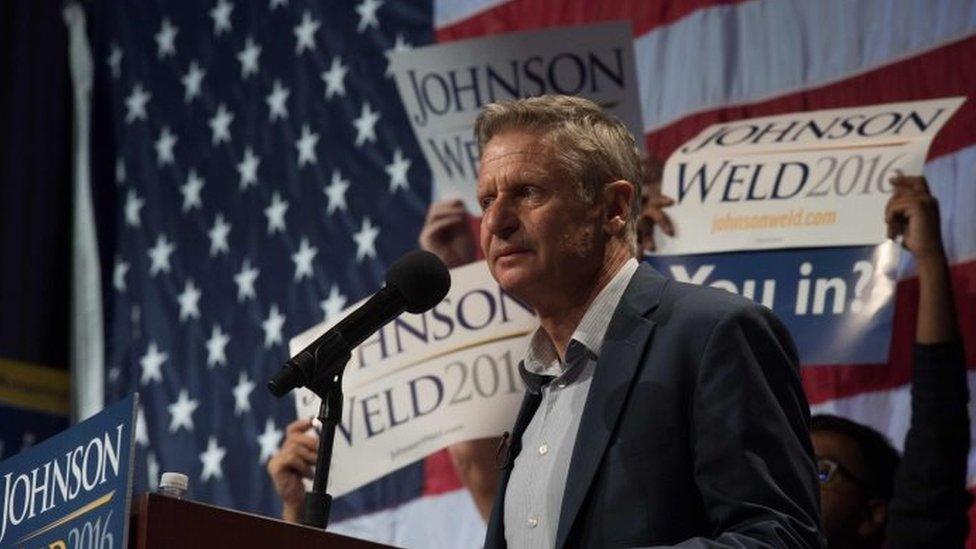
The Libertarian candidate and fellow "third party" contender Jill Stein, of the Green Party, were bit-part players at this election, with about 3% and 1% of the popular vote respectively.
But some, such as CNN, have suggested they cost Clinton the election, external by siphoning off votes from her in key swing states.
According to exit polls, a quarter of Johnson and Stein voters said they would have backed Clinton if they had to pick between the two major-party candidates. About 15% would have backed Trump.
But - and here is the major flaw in the argument - most Johnson and Stein voters said they would have just stayed home if their only choices were Clinton and Trump.

What if pneumonia had forced Clinton out?
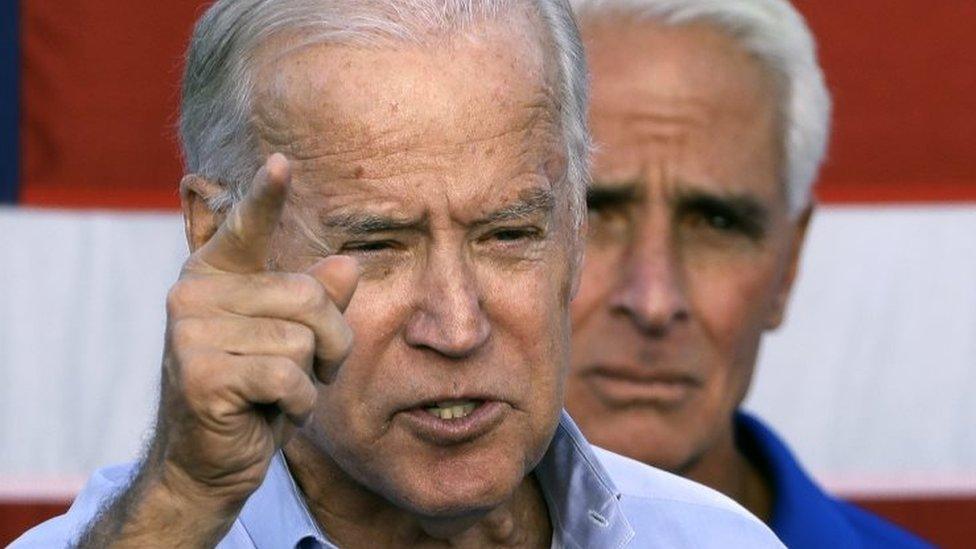
What we are really asking here is could Joe Biden (pictured) have beaten Trump?
The plain-speaking, avuncular vice-president was being tipped as the likely stand-in if Clinton had decided to quit the race back in October when she was diagnosed with walking pneumonia.
Like Bernie Sanders, who almost certainly would not have been chosen by the Democratic Party inner circle to take over as the nominee, Biden might have gone over better than Clinton in the Rust Belt.
His closeness to President Obama might also have helped convince a few Democrats pining for a third Obama term.

What if voter registration rules were different?
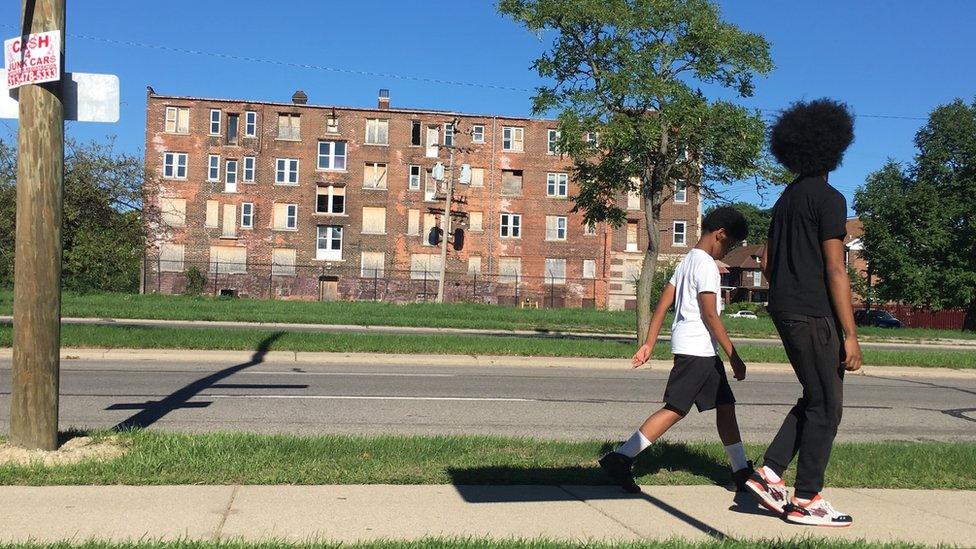
Some have claimed tighter voter registration laws, championed by Republicans and allegedly aimed at making it more difficult for African Americans to cast a ballot, cost Hillary Clinton crucial votes in swing states like Virginia and Wisconsin.
Black voters did not turn out in the same numbers for Clinton that they did for Barack Obama in 2008 and 2012 - and this was one of the reasons she lost to Donald Trump.
But it is impossible to say with any certainty how much of this was down to the new registration rules in 14 states and how much was down to the fact that Obama was not on the ballot.
People do or don't vote for all kinds of reasons. What we do know is that there were 868 fewer polling places in the 16 states with a history of voter discrimination that, under the old rules, would have had to get federal permission to close them.
There is also some evidence from North Carolina, external of the suppressive effect a shortage of polling places had on the vote in black areas in early voting.
More research is required here, although most of the states with the new restrictions were not battlegrounds, so it's not clear whether it would have ultimately changed the Electoral College result.

What if the US had proportional representation?
Hillary Clinton looks on course to win the popular vote, although only by a slender margin. That would be only the fifth time in American history that the losing candidate in a presidential election has got more votes than the winner.
So things might have been very different if the Electoral College system had been scrapped.
But if a campaign as well-funded and slick as Clinton's (remember how much we heard about her superior "ground game"?) could not get out its vote in swing states then, you might argue, it really didn't deserve to win.